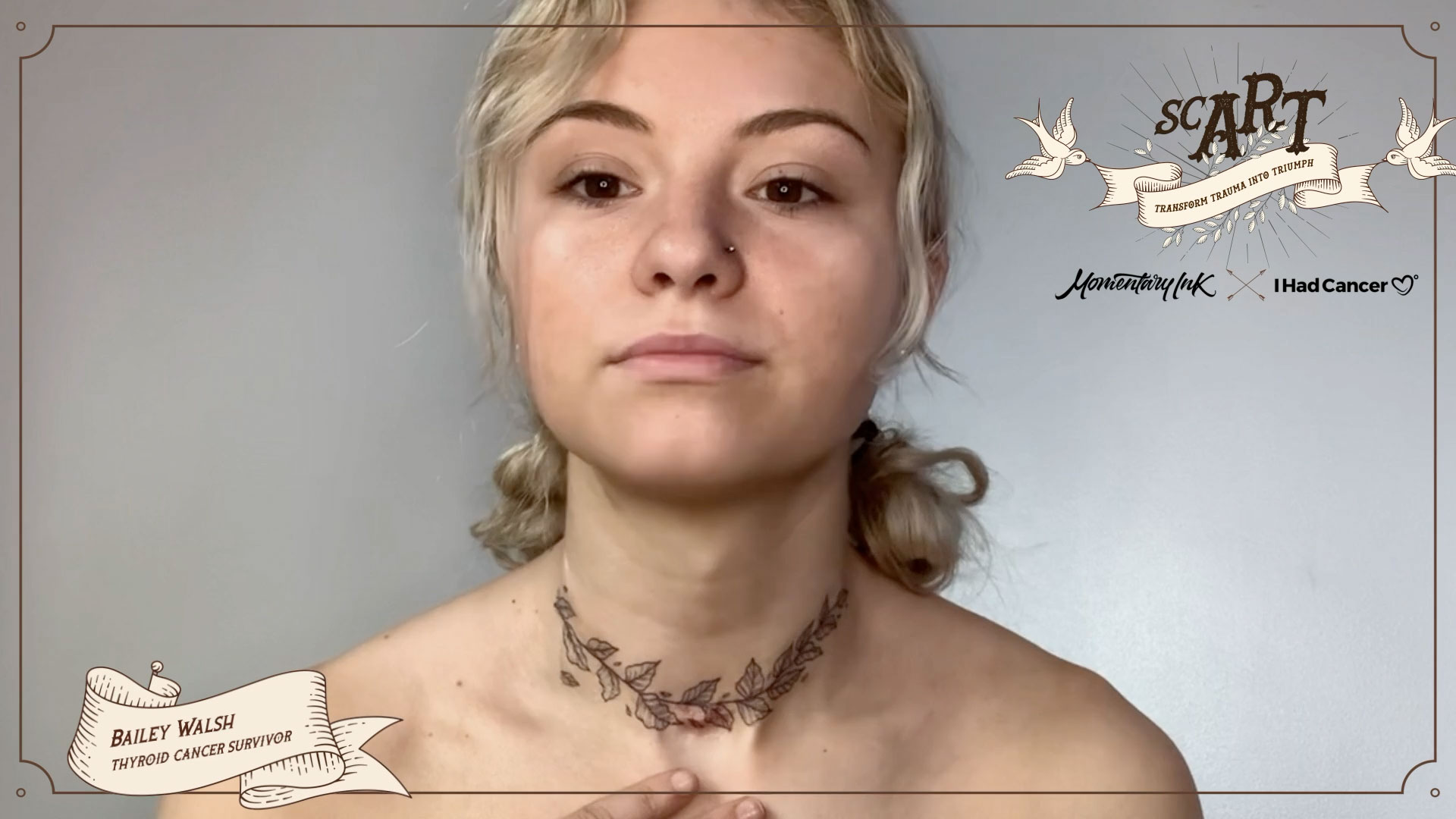Temporary Tattoos Transform the Scars Left by Cancer
At age 15, as a high-school freshman, Bailey Walsh underwent surgery to treat late-stage thyroid cancer. That procedure left a large scar across her throat, which drew taunts from her peers. Feeling sad and self-conscious, she wore necklaces and chokers to cover the red, puckered skin.
We meet Walsh in the clip below, which touts "scART" temporary tattoos from Havas Health, Momentary Ink and the I Had Cancer advocacy community.
The project stresses empowerment and personal choice. Life-saving procedures can transform bodies in ways that leave patients feeling vulnerable and exposed. The scART system helps them hide or emphasize physical wounds and blemishes, whichever they choose. Either way, survivors regain a measure of control and feel more comfortable in their own skin.
In the aftermath of her surgery, "this tattoo would have been something I would be interested in, in helping me come to a place where I'm comfortable with my scar—where I am now," Walsh says. "Wearing it right now, I can accentuate it and make people realize that your scar can be beautiful, and it can be strong."
"Beating cancer makes you feel victorious, but it's difficult to put it behind you when the scars it leaves behind are a constant reminder," Allison Ceraso, creative lead at Havas Health Plus, tells Muse. "These scars take a psychological toll and can lead to depression, anxiety, social and intimacy issues."
To promote emotional healing, the team worked with survivors to develop a line of painless, self-adhesive illustrations. The tattoos make allowances for sensitive and textured skin resulting from thyroidectomies, lumpectomies, mastectomies and procedures involving chemotherapy ports. The images—floral bouquets, feathered wings and abstract designs, among others—take a few days to fully apply and can last several weeks or months.
"I lost my dad to cancer, and I understand what it means to fight," says Momentary Ink brand manager Brandon Study. "I know the days and weeks and months of fighting are brutal and take their toll on people and their confidence. If we, with a temporary tattoo, can provide some kind of silver lining or even a smile, that would be such a meaningful achievement."
"Cancer doesn't give you much control over things," adds I Had Cancer founder Mailet Lopez, "so you take it when you can."
What's more, from a caregiver perspective, "this can be a mechanism to rally behind a family member or friend—something you can do together," says Lopez, a breast cancer survivor, who believes the scART system can foster connection and understanding.
At present, the team continues to test prototypes, and plans to hand out free scART tattoos on June 6, National Cancer Survivors Day. A full launch is slated for this summer.
"While there are many efforts in the world to help survivors embrace their scars and wear them proudly, and many do, there is a population of silent sufferers who simply cannot get there," Ceraso says. "For these survivors, we want scART tattoos to draw them out of the shadows and help them regain their self-esteem and confidence."













